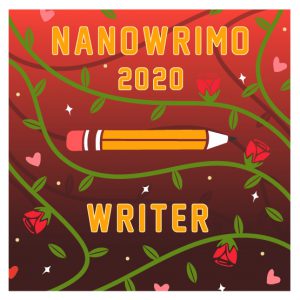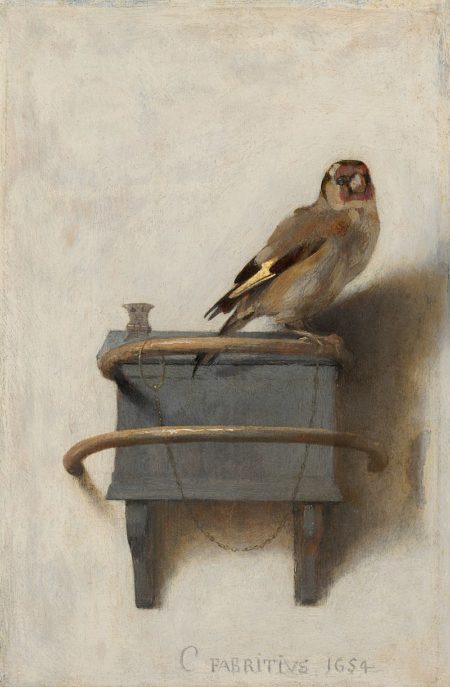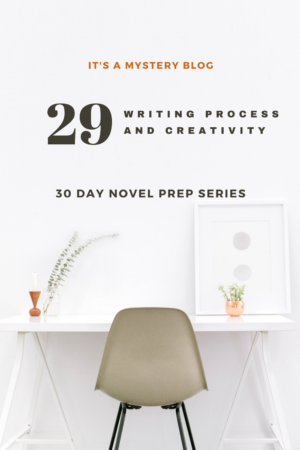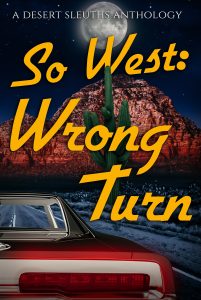As we begin to wrap up the NaNoWriMo (National Novel Writing Month) prep series, let’s talk about writing process and creativity.

Writing can be a real a mystery. Yesterday, while typing up a blog post about endings, I had an epiphany about the beginning line of my novel. Popped right into my head. What is up with that?
Because we are about to embark on what is the writing equivalent of a marathon, perhaps it is time to talk about the creative process. Where do these new ideas come from? How does imagination work? How do we encourage it?
Where do the ideas come from?
Experts suggest that ideas come from having a question in mind. Some problem — small or large — has caught the attention of your brain and now it is puzzling out the answers whether you are aware of it or not. The answer arrives in the form of an idea.
For my “beginning” example above, I suspect one of the articles I looked at while preparing the post on endings must have mentioned the importance of beginnings as well. Perhaps it was in a fleeting title in a related posts section that I barely glanced at. In any case, without conscious effort my brain began churning away at the problem. I didn’t even know it had been engaged until the answer arrived.
I like calling creativity a “muse” because it helps explain that sort of unpredictability. Elizabeth Gilbert has a wonderful TED talk about the fickleness of creativity, which I’ve shared in a previous post. It’s well worth visiting.
Tricking Your Muse
At some point during the course of writing your novel, your muse may decide to take a long vacation in Hawaii. Here are some ways to trick him/her/it back into the room.
1. Read over what you wrote the day before. Remember what you were thinking and what you were feeling, plus where it was leading you. If you can’t remember, don’t worry about it because that will take up more mental space. Ask yourself the question, perhaps out loud. “Where was I going?” Then play around with some of the other suggestions in this list.
2. Set a timer and free write for 15 minutes. During that time, send your inner critic on vacation, perhaps to Florida. No correcting yourself. Ignore spelling, punctuation, grammar. Also, no expectations. Write whatever pops into your head.
Recently, I was supposed to write a letter from one of my characters to another. It wasn’t working, so instead I free wrote a letter to my sister. Turns out I had been thinking about her. Getting my thoughts down on paper freed me to work on my novel again.
3. Move to another scene or plot point and reverse engineer the scene you are stuck on later (a suggestion from yesterday’s post about endings.)
4. Check in with yourself. Sometimes we get so caught up in writing, we don’t take care of our needs. Are you hungry? Thirsty? Too warm? Too cold? Need a trip to the restroom? Tired? Are you wearing comfortable clothes? Are there noises that are distracting you?
Be careful, however, that you aren’t using a trip to the fridge as a way of procrastinating. If you just ate 15 minutes ago, hunger probably isn’t the issue.
5. Take a shower. A shower combines gentle physical stimulation with a retreat from the world. It is a mini-vacation that might bring your muse back from hers.
6. Change venue. Take a walk, take a ride, drive somewhere new, write in the park, write in the basement. Maybe your muse will be intrigued by the novelty.
7. Join other writers. Writing is a hard thing to do and writing alone can make it more difficult. Try to find other writers and spend time writing together. Share experiences. Bounce ideas off each other. These days the meetings will probably be virtual, but that works, too.
8. Promise yourself a reward for finishing something. Positive reinforcement is good and it can be a simple as a piece of chocolate or five minutes on social media.
If none of these suggestions work, it might be time to take a long look at your project with an objective eye. Is your reader self trying to tell you there’s something wrong that your writer self doesn’t want to face? I once spent several weeks rewriting the first four chapters of a novel, spinning my wheels over and over. I couldn’t get past those chapters for some reason. Then, I figured out the glitch. My main character had no motivation to stay with the problem I wanted him to solve. In fact, he had good reasons to walk away. I decided to let him go and set the project aside for the time being.

Recharge Your Muse
If your creativity battery is simply low, there are ways to recharge that don’t require vacations to Hawaii. The tried-and-true way is to do some reading. In addition to any book you have handy, I recommend Natalie Goldberg’s Writing Down the Bones. It is full of chatty, but genius gems about writing.
In addition, look at art, listen to music, attend a play, or watch a movie. Let the creativity of others spark something in you.
Happy writing!
Do you have any other suggestions for keeping your creativity flowing? I’d love to hear them.
#####
Visit our 30 Day Novel Prep Page for all the links.





